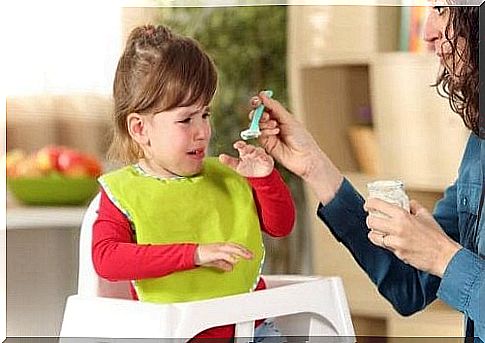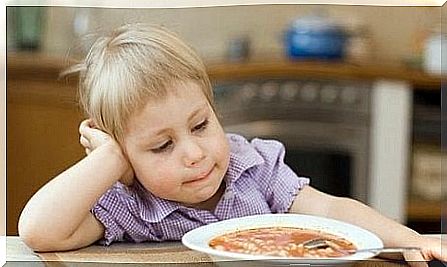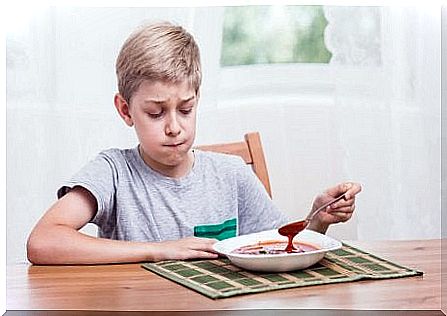What To Do If Your Kids Don’t Want To Eat

It can be very difficult to try and figure out why our kids don’t want to eat. They may be sick, they may not like the food or it may be a behavioral problem.
Almost all parents have gone through a stage where their children are reluctant to eat. It is a scenario that causes a lot of worry and frustration.
However, lack of appetite can be the result of many motives and most are not related to negative causes.
That’s why today we want to talk to you about the different aspects that you should consider if your kids don’t want to eat. Of course we also offer some possible solutions.
What to do if children don’t want to eat
Find the reason behind the ‘no’
The first aspect to consider is why your child is refusing to eat. This can be for a number of reasons. Many of these have to do with the age of your little one:
- Children aged 1 to 5 years. According to nutritionists, children develop a reduced ability to eat food at age 1 compared to the previous months. You may think that your child does not want to eat. However, the fact is that small children fill up quickly and still meet the needs of their bodies.
- Between 6 and 8 years old. In this age group, children absorb more food. This fact also coincides with a period of increased physical growth.
- Psychological causes. Children who are very spoiled may refuse to sit at the table. What can also happen is that toddlers eat snacks and sweets when they are at school. As a result, when the time comes to eat a large meal, they already feel full and therefore refuse to eat.
- Special diseases: In specific cases, children may refuse to eat during their first year of life due to an illness. Problems related to the functioning of the child’s kidneys, lungs, or gastrointestinal tract can all be to blame. It is always a good idea to talk to a doctor if you are unsure or if your child is completely refusing to eat
What to do when kids won’t eat: solving the problem

Once you are aware of the possible causes, you should focus on how to get your child to eat. As always, it is important to distinguish between a child who is not hungry and a child who simply does not want to eat what is offered.
Remember that you should also avoid overeating your child. Even if it seems like your child is eating small portions, your child may still be full. In that case, his or her stomach can no longer absorb food.
Helpful Tips

Below we give you a list of simple and practical ideas to keep in mind when kids don’t want to eat.
Visual portion
Offer food portions appropriate for your child’s age on the largest plate you have in the house. This creates the visual effect of serving less than you actually do. Children think they are only given a small amount of food and will eat it quickly.
Don’t drink water
Do not let your children drink juice or water until they have finished the main meal or food item. If you do, they’ll fill up faster and won’t have enough stomach space to eat properly.
No TV or toys
Turn off the TV and ask your kids to clean up their toys 20 minutes before meals. That way they will have no distractions and be able to focus on eating. When your kids are cleaning up, their appetite will increase.
do not fight
Never use mealtime as a time to argue. Don’t discuss school issues or argue with your kids about how cluttered their rooms are. This will only lead them to associate food with judgment and criticism.
If children don’t want to eat, don’t give in to every whim and demand of your child
Your child may very well refuse to eat anywhere other than on the bed or in front of the TV. At the same time, children often tend to want to eat only junk food and sweets instead of a balanced meal.
In those situations it is important not to give in. Stay firm and give your child some space. Wait until he or she is hungry enough to sit down at the table and eat the meal you prepared.
No fast food
Avoid giving excessive amounts of high-sugar foods, fast foods, and fried foods. It is a proven fact that children who eat too many sweets or foods with flavor enhancers such as MSG will be less willing to eat healthy and homemade foods. Remember that fast food products contain a high amount of flavor enhancers.
As a final recommendation, never punish your child at mealtime. You should also not let your child sit at the table all day until he or she finally eats. Also consider portion size.
If you follow these tips, you will soon see that your children will start eating more legumes, vegetables and proteins that their bodies need.









